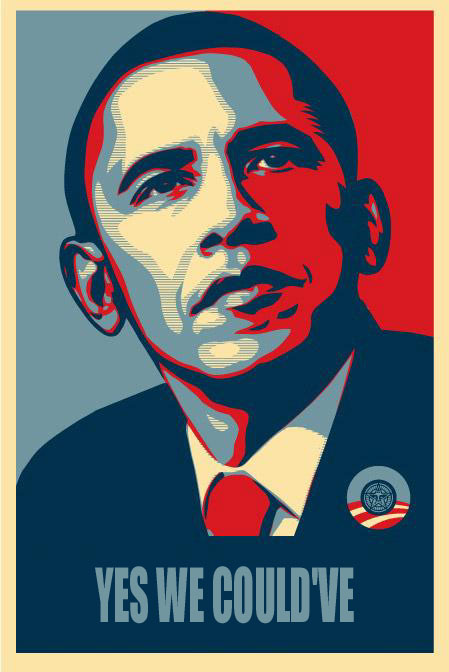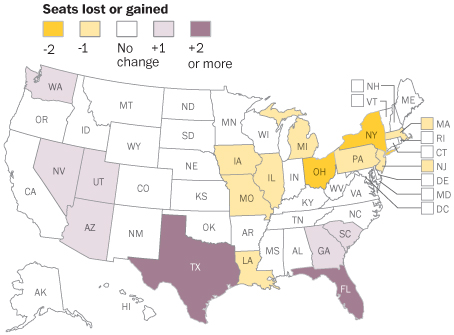
“
This is the public option debate all over again. So I pass a signature piece of legislation where we finally get health care for all Americans, something that Democrats had been fighting for, for a hundred years – but because there was a provision in there that they didn’t get…somehow that was a sign of weakness and compromise.
“Now, if that’s the standard by which we are measuring success or core principles, then let’s face it, we will never get anything done. People will have the satisfaction of having a purist position, and no victories for the American people. And we will be able to feel good about ourselves, and sanctimonious about how pure our intensions are and how tough we are…That can’t be the measure of how we think about our public service. That can’t be the measure of what it means to be a Democrat.
“
As I’m sure most of y’all know by now, the president decided to indulge in some cathartic lefty-bashing at his tax cut deal press conference earlier in the week. [Transcript.] At this point, the fact that Obama feels this way about progressives is not at all a surprise, and I feel like I’ve already responded to his appalling penchant for this sorta thing at length. So, here’re just a few numbered points about this latest sad window into Obama’s “pragmatic” mindset:
1) Alex Pareene at Salon cut right to the heart of the fallacy on display here: “[Obama] continues to imagine that his liberal critics are upset with the idea that compromises need to be made in order to accomplish progressive policy goals. Some of them are that stupid. But lots of them are actually critics of the White House’s legislative strategy, and their apparent willingness to preemptively compromise before the negotiations have already begun.” Yep.
2) See also Paul Krugman: “Leave aside the merits for a moment: what possible purpose does this kind of lashing out serve? Will activists be shamed into recovering their previous enthusiasm? Will Republicans stop their vicious attacks because Obama is lashing out to his left? It was pure self-indulgence; even if he feels aggrieved, he has to judge his words by their usefulness, not by his desire to vent…[W]hat we really don’t need right now is a president who blames everyone but himself, and seems more concerned with self-justification than with sustaining the alliances he needs.“
3) As I noted on Twitter, the president’s argument here is inherently contradictory. He began his presser by saying he had to make a bad deal because the Right, however wrongheaded, held stubbornly to their convictions. Then he verbally abuses the Left for…holding stubbornly to their convictions. Uh, it seemed to work pretty well for the GOP.
4) Speaking of Twitter, the Twitterverse response to the presidential presser is well worth perusing for gallows humor and hard truths. Take for example, “Obama: This is like the public option fight all over again where I caved and opposed the thing that reduced the deficit.“
5) As many have pointed out now, the president is also wrong on his New Deal history. In the presser, he claimed Social Security was only for widows and orphans. Wrong. He’s thinking of the civil war pension system, circa 1862. I know that law degrees are considered the be-all, end-all of our civilization these days, but an ostensibly progressive president not understanding the origins of Social Security is sort of a big effing deal. (And he didn’t just misspeak — He’s said it before.)
6) As historian Thomas Ferguson noted several weeks ago, this is not the first time the president has badly screwed up the history of the New Deal in a way that was ultimately self-serving. (As an aside: Given they they chose to structure a major policy speech around a fake Lincoln quote, his communications staff isn’t much better.)
7) As Dan Froomkin pointed out, Obama’s argument about the public option is also contradictory. He argues that Social Security and Medicare started out small, than belittles the public option because it “would have affected maybe a couple of million people,” i.e. it would’ve started out small.
8) Obama also no longer seems to understand how the public option was supposed to work. Here’s Froomkin: “What the president conspicuously disregarded was that the central point of the public option was that its existence would exert enormous competitive pressure on the private insurance system. The goal was not to serve a particularly large number of people directly — that would only happen if the private offerings were terribly inadequate. The goal was to keep the private sector honest. So no matter how many people it enrolled, ‘the provision,’ as Obama put it “would have affected” tens of millions.” In other words, the public option was designed to be a yardstick. So, even in terms of recent history, there are some serious revisions going on.
9) Politico’s catty analysis of the president’s relationship with Chuck Schumer offered more insights on Obama’s thinking today: “Obama himself warned Schumer that the millionaire strategy could sink the stock market. When a vote on the millionaire plan came up short last Saturday, the administration gloated.” The vagaries of the stock market? Is that really what we’re basing our tax policies on these days? (Also, I don’t think Chuck Schumer, of all people, needs to be informed of when and how Wall Street will balk. I think he has his finger pretty solidly on that pulse.)
10) A day after the president’s remarks, Larry Summers solemnly informed us that not passing the millionaire tax cut would lead to a double-dip recession. This is basically the economic equivalent of the terror, terror, terror, 9/11, 9/11, 9/11 argument. And, as David Dayen and Jon Walker both pointed out: If the economy is resting on that sort of knife’s edge, why’s the White House just reduce purchasing power by announcing a federal worker’s pay freeze? Something does not compute.
11) Obama at the presser again: “Look at what I promised during the campaign. There’s not a single thing that I’ve said that I would do that I have not either done or tried to do. And if I haven’t gotten it done yet, I’m still trying to do it.” Um…do we really want to go there? Because I’m sure this would be news to Maher Arar. In any case, as a friend pointed out, this isn’t kindergarten — You don’t get a gold star just for “trying.”
Anyways, so, yeah, Obama doesn’t like “the professional left” very much. And, at this point, it’s safe to say the feeling is mutual. As for myself…well, these days I just feel like a sucker.






